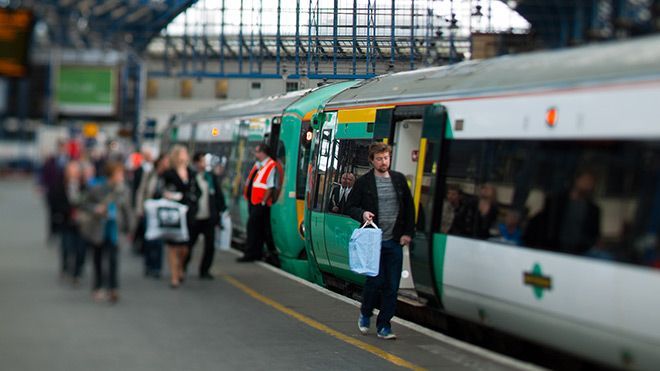
Keep guards on trains
Gone are the days when the only way for wheelchair passengers to travel was in a draughty often very cold guard’s van (though I understand this can still be the only option). Today disabled people can travel more freely with greater access.
Traveller assistance is commonplace at major termini, but less so at quieter more isolated stations. And increasingly the smaller stations are getting rid of their platform staff.
What then does the future hold for disabled travellers? It is bad enough us losing staff who are an important link to station, platform and train access. Now companies such as Govia Thameslink Railways (GTR), which runs Southern Rail wants to get rid of guards.
The guard isn’t merely someone who walks up and down a train inspecting tickets. No, the job also includes protecting passengers during emergency situations such as the driver becoming incapacitated, fires, derailments. They ensure doors are secure, particularly on crowded trains; and protect passengers boarding and alighting crowded trains. They are on hand to deal with anti-social behaviour on trains. And of course, they assist disabled people throughout the journey.
The guard is therefore a necessary staff member aboard a train. For disabled people they can be the difference between arriving at your destination within a reasonable time frame or taking hours to complete a local journey.
Disabled people travelling on trains often meet further challenges when on the train. Other passengers blocking the carriage exit with luggage. On countless occasions I’ve tried to negotiate with other passengers about blocking the doorway. On the occasions I’ve been ignored I find the guard usually carries enough authority to get the obstructions moved.
Guards will also assist vision impaired and those with mobility difficulties to the WC. They will go to the buffet car and bring back refreshments.
But all that aside having guards on trains gives disabled travellers a greater sense of personal safety; of being secure in the knowledge there is someone there to assist you; it gives us a sense of inclusion, being able to travel just as the rest of the passengers.
Stay Updated
Want to hear about our latest news and blogs?
Sign up now to get it straight to your inbox
